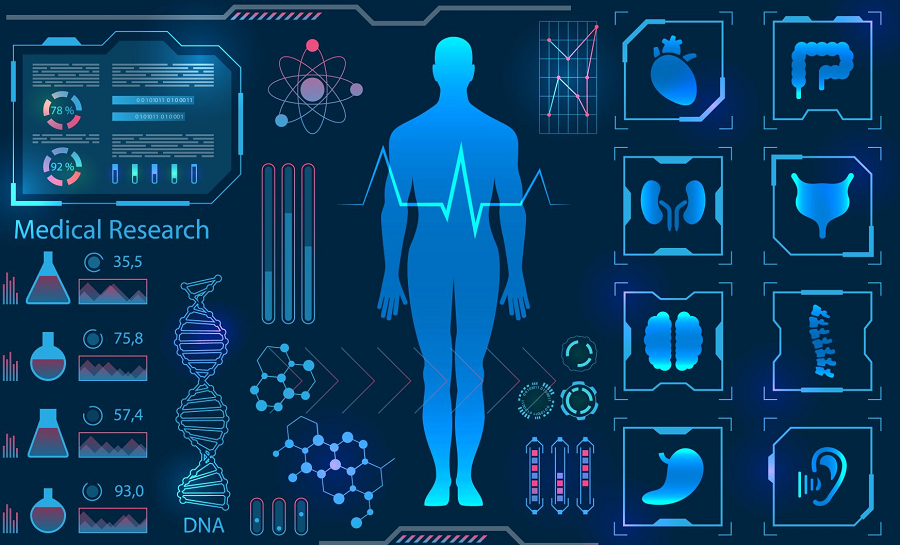Precision Medicine: A Paradigm Shift in Healthcare for Personalized Treatment
Precision medicine empowers clinicians to make informed treatment decisions by matching specific genetic markers or mutations with targeted therapies
Post by MAJID YOUSUF on Thursday, June 8, 2023

In the ever-evolving landscape of healthcare, precision medicine has emerged as a ground-breaking approach that aims to transform the way diseases are diagnosed, treated, and prevented. By leveraging advances in genomics, technology, and data analytics, precision medicine holds the potential to revolutionize healthcare by offering personalized treatment plans tailored to individual patients. This article delves into the concept of precision medicine, its key components, potential benefits, and the transformative impact it is set to have on the future of healthcare.
Understanding Precision Medicine
Precision medicine encompasses a patient-centric approach that considers an individual's genetic makeup, environmental factors, lifestyle choices, and unique medical history. Unlike the traditional "one-size-fits-all" approach, precision medicine recognizes that each patient is unique and requires a tailored treatment plan.
The Role of Genomics
Genomics plays a pivotal role in precision medicine. With the advent of genomic sequencing technologies, healthcare providers can now decipher an individual's genetic information with remarkable accuracy. By analysing a person's genetic makeup, researchers and clinicians gain valuable insights into the underlying genetic drivers of diseases, thereby enabling targeted interventions and therapies.
Empowering Treatment Decision-making
Precision medicine empowers clinicians to make informed treatment decisions by matching specific genetic markers or mutations with targeted therapies. This approach allows for the identification of treatment options that are more likely to be effective and less likely to cause adverse reactions. Patients can benefit from treatments that are tailored to their specific genetic profiles, increasing the chances of successful outcomes, and minimizing unnecessary treatments.
Personalized Prevention
Precision medicine is not limited to treatment alone; it also holds great promise in disease prevention. By identifying individuals at a higher risk of developing certain diseases through genetic testing and lifestyle assessments, healthcare providers can develop personalized prevention strategies. This proactive approach enables early detection and intervention, potentially averting the onset or progression of diseases.
Data-driven Advancements
The advancement of technology and the availability of vast amounts of health-related data have significantly contributed to the growth of precision medicine. With the aid of artificial intelligence, machine learning algorithms, and big data analytics, researchers and clinicians can analyse complex datasets to identify patterns, predict disease risks, and develop more accurate diagnostic tools. This data-driven approach helps unlock critical insights that can lead to improved patient outcomes.
Ethical Considerations and Privacy
While precision medicine offers immense potential, it also raises ethical considerations. Safeguarding patient privacy, ensuring informed consent, and promoting transparency in the use of genetic information are paramount. Striking a balance between innovation and ethical considerations is essential to maintain patient trust and support the responsible implementation of precision medicine.
Collaborative Efforts for Success
Precision medicine necessitates collaboration among various stakeholders, including researchers, clinicians, policymakers, and patients. It requires the integration of data from diverse sources and the sharing of knowledge and expertise across disciplines. Collaborative efforts can drive progress in precision medicine, leading to more refined diagnostic tools, targeted therapies, and improved patient care.
Precision medicine represents a paradigm shift in healthcare, offering a transformative approach to diagnosis, treatment, and prevention. By embracing individualized care based on genetic profiles, lifestyle factors, and personal health history, precision medicine has the potential to revolutionize patient outcomes. As precision medicine continues to evolve, it is essential to address ethical concerns, invest in research and technological advancements, and foster collaboration across the healthcare ecosystem. Through these efforts, we can unlock the full potential of precision medicine and pave the way for a future where healthcare is truly personalized, effective, and patient-centered.
(Author is a Radiodiagnosis student at Government Medical College, Anantnag and a researcher in precision medicine. Email: majidyousef04@gmail.com)